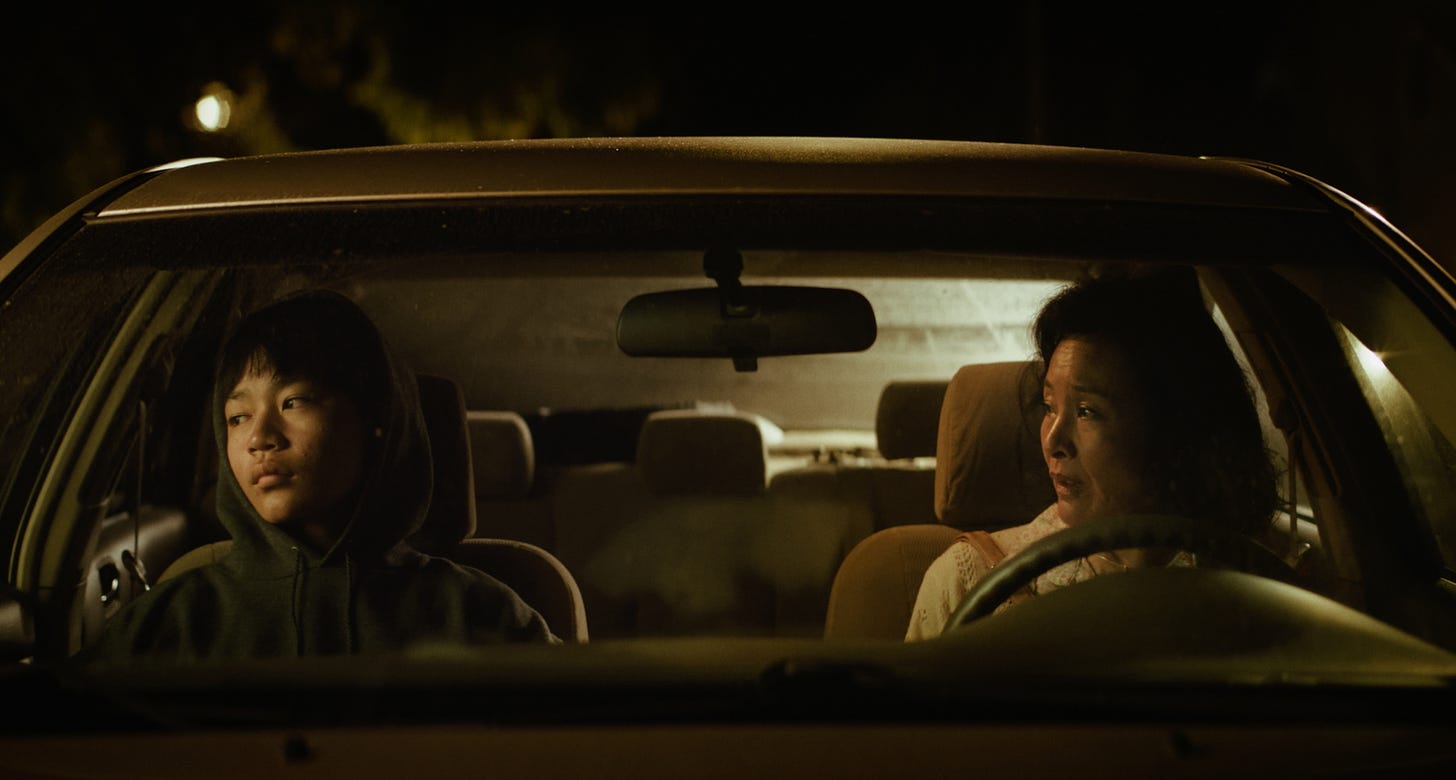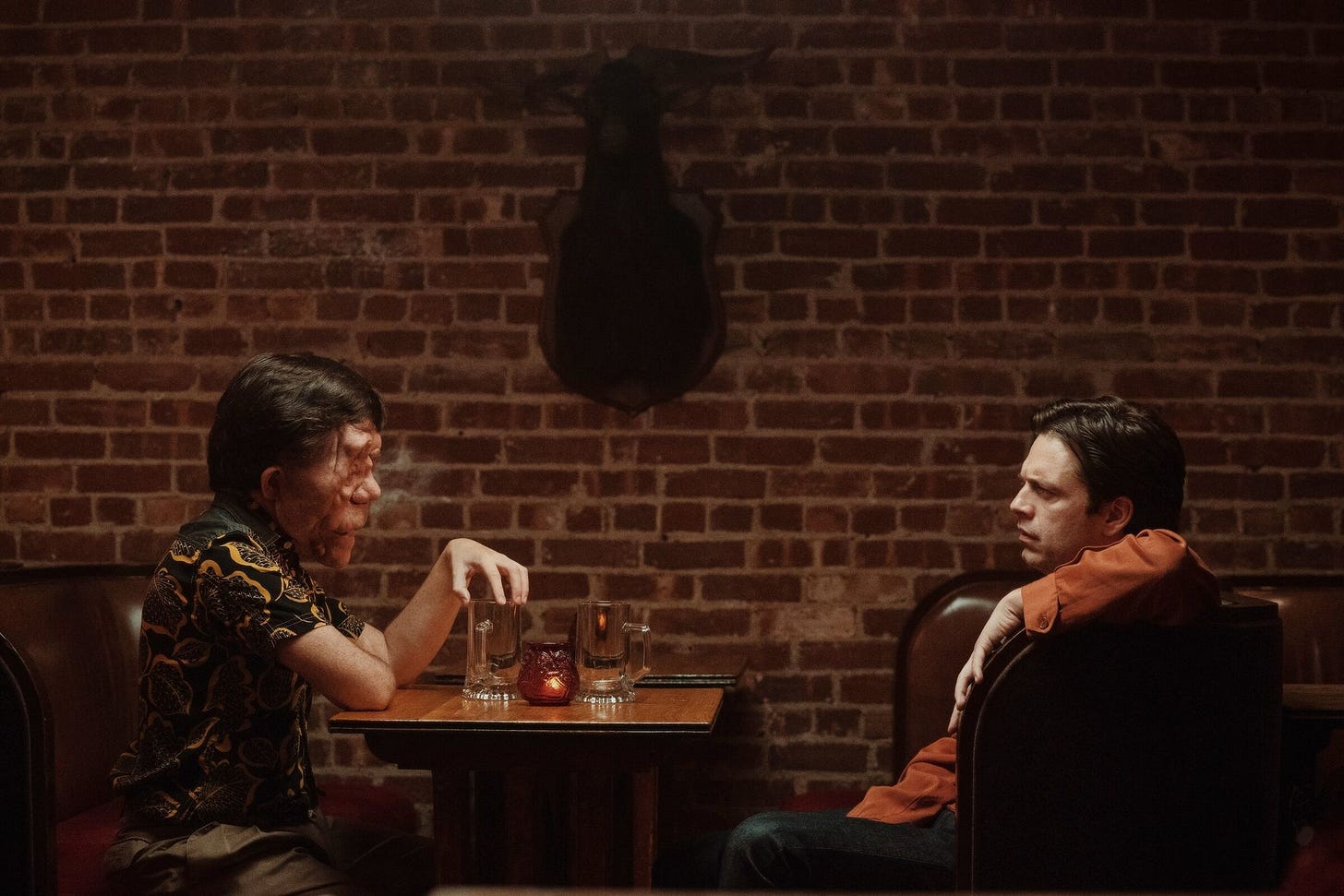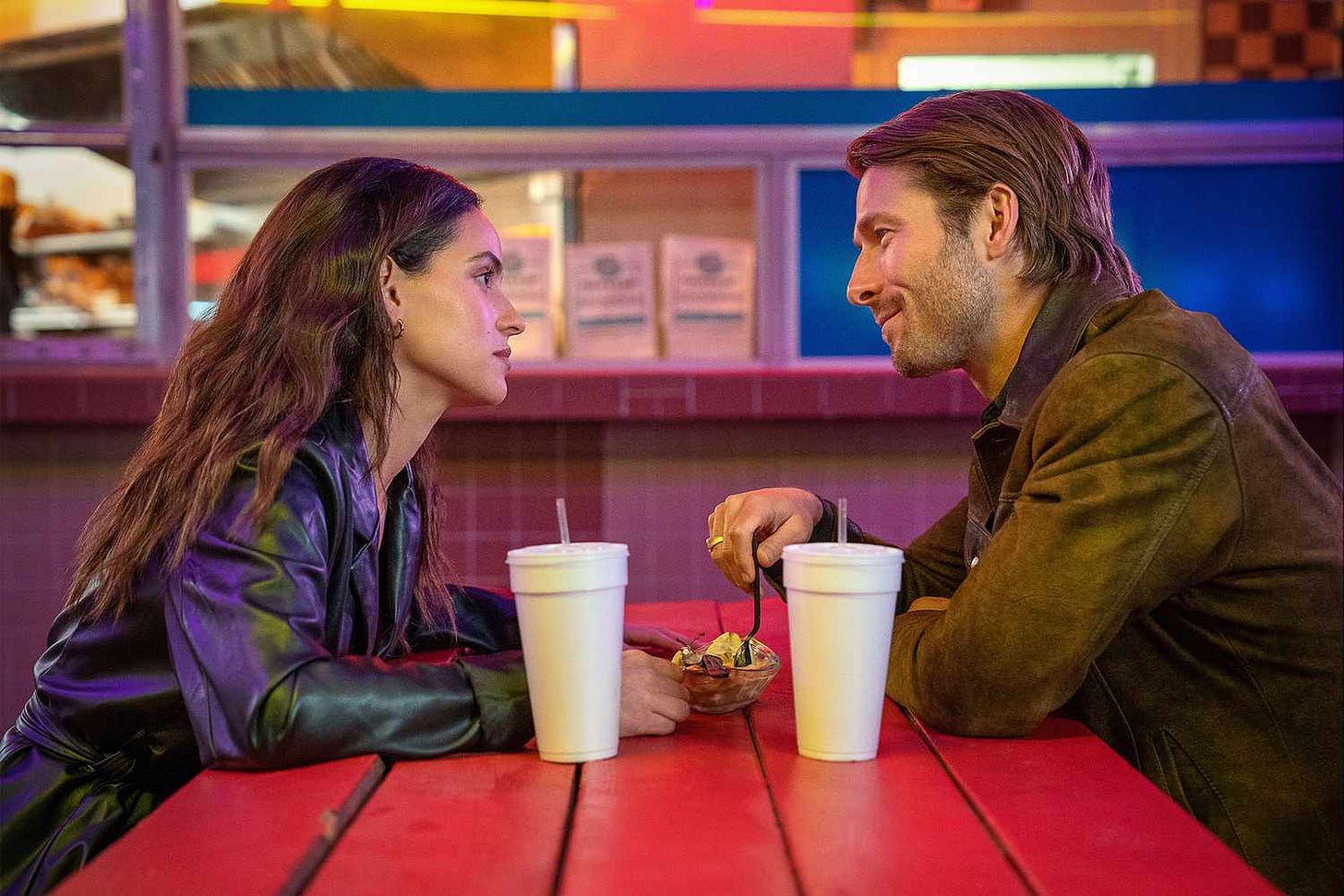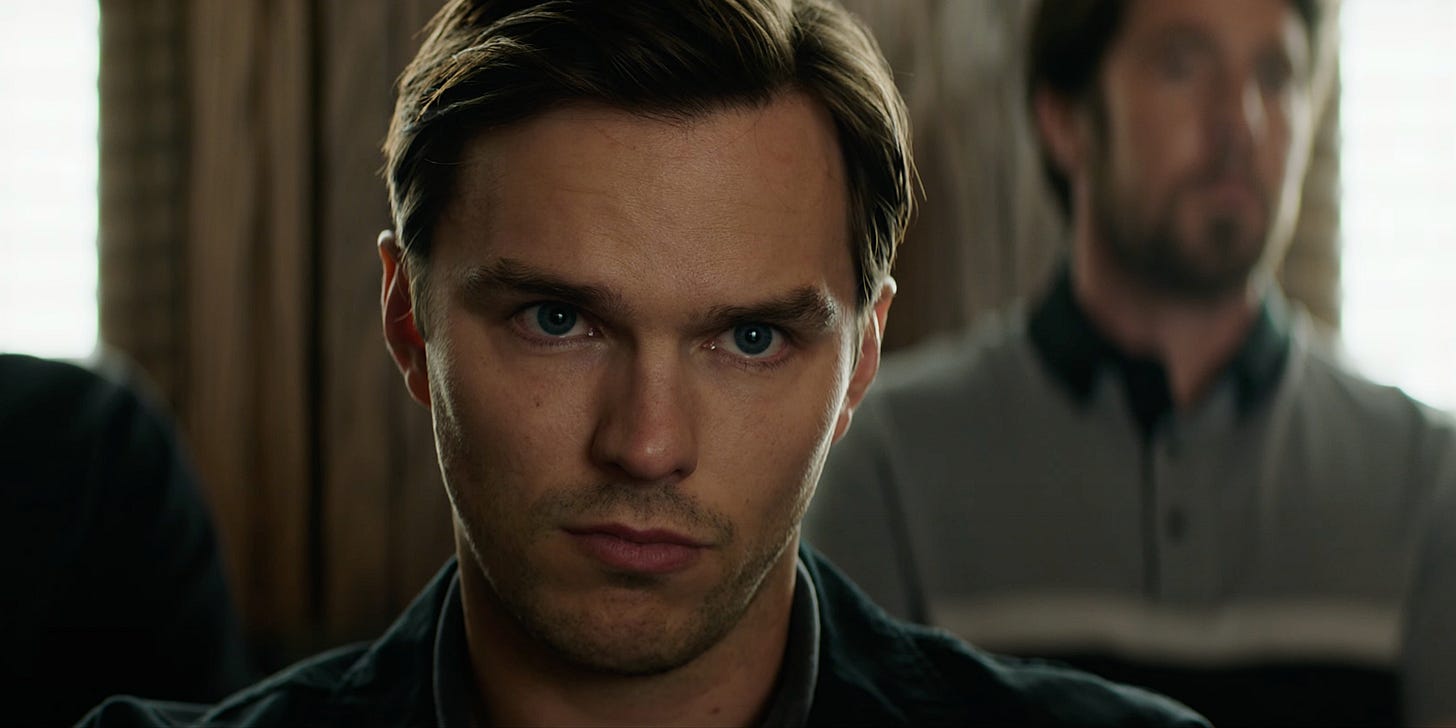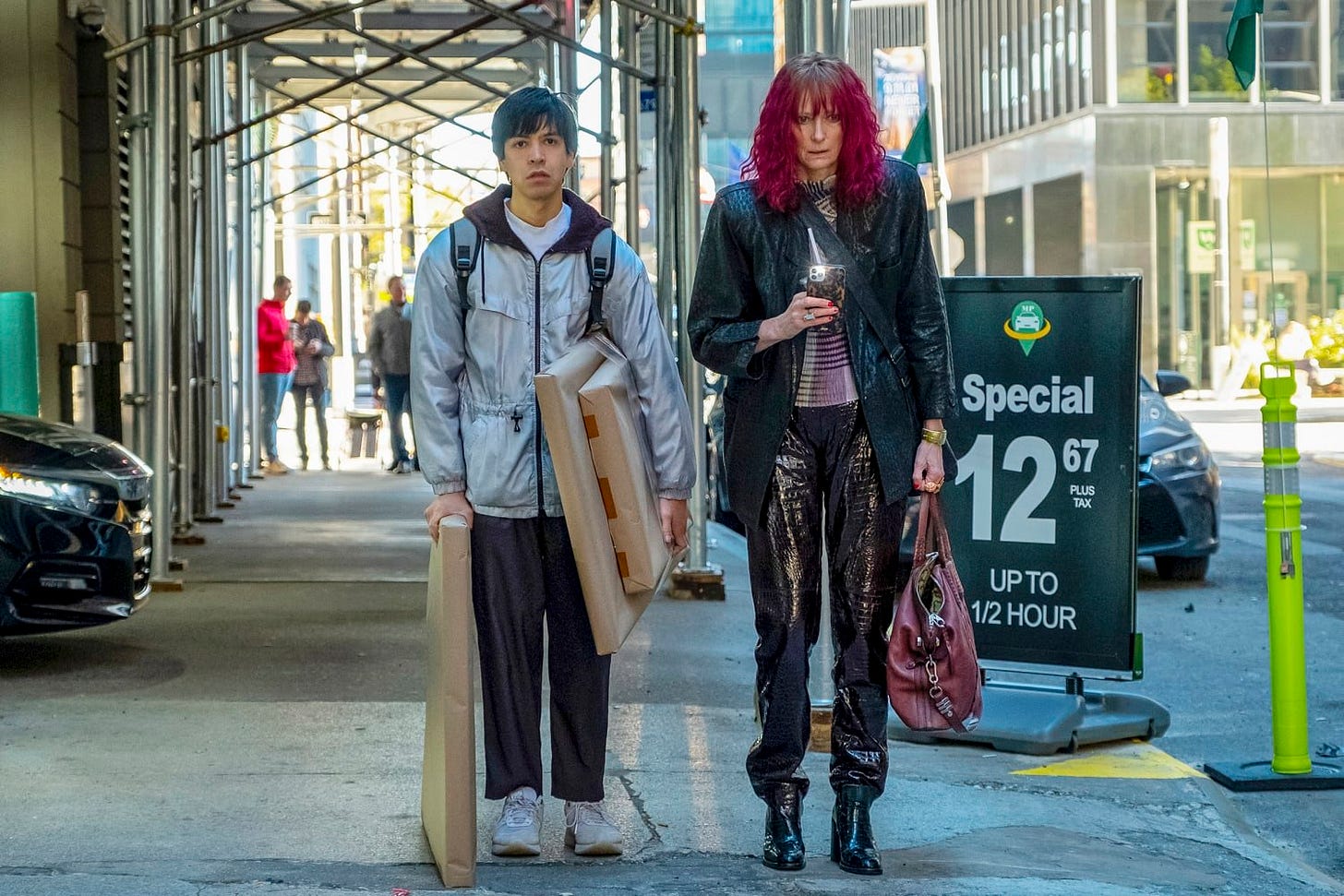Oscar on the Oscars: The Snubs of 2024
Honoring my favorite movies of the last year that didn't get any love from the Academy.
Welcome back to Oscar on the Oscars! This is the sixth installment of my annual column on the awards show with which I share a name. I began it in 2020 at The Scarlet, the student newspaper of Clark University, then continued it at The Wesleyan Argus when I transferred colleges. This marks the second edition of OOtO to be hosted in its new home, here on my Substack.
The 97th Academy Awards, scheduled for Sunday March 2, are shaping up to be an incredibly interesting ceremony. In sharp contrast to last year, when Oppenheimer entered the clear favorite and surprised no one with its sweep, this year, the metaphorical horse race is far murkier.
The leader in nominations, with thirteen, is Emilia Pérez, a Spanish-language musical drama from French director Jacques Audiard, one of the more baffling awards season darlings in recent memories. Not only has Emilia Pérez, a film set in Mexico and centered on a transgender character, been met by backlash from Mexican and transgender viewers for its apparent misrepresentations of those very communities, but even as a film in a vacuum, it doesn’t quite cohere, with tonally muddled drama and songs that don’t land.
The only other films to come away with double-digit nominations were The Brutalist, director Brady Corbet’s historical drama starring Adrien Brody as a Holocaust survivor architect, and Wicked, director Jon M. Chu’s blockbuster adaptation of the hit Broadway musical, with both films receiving ten nominations apiece. Not far behind, with eight nominations each, are A Complete Unknown, director James Mangold’s music biopic starring Timothée Chalamet as Bob Dylan, and Conclave, director Edward Berger’s twisty political thriller starring Ralph Fiennes as a cardinal at the center of the drama surrounding the election of a new pope.
My personal favorite among the nominees for Best Picture is director Sean Baker’s Anora, the tragicomic tale of the entanglement of its titular character (Mikey Madison), a young Brooklyn stripper, with a Russian oligarch’s son, which got eight nominations. Dune: Part Two, the science fiction epic directed by Denis Villeneuve and starring Chalamet ranks a close second for me, and earned five nominations, fewer than the six Oscars won by the 2021 first installment.
As always, though, plenty of the year’s best films came away with little or no acknowledgment from the Academy. This is always to be expected; there simply aren’t enough nominee spots to fit all the deserving works from a whole year in cinema, and beyond that, whether for reasons of taste or a lacking marketing campaign, some great movies simply find themselves outside the Academy’s radar. However, when some of the nominees for Best Picture (including the seeming frontrunner) are among my least favorites of the year, the lack of love for the films that shaped my year becomes all the more frustrating. Before I write about the real Oscars next month, allow me to share some love for this Oscar’s favorites.
Films are listed in alphabetical order and are not ranked.
Challengers
Most of the other films on this list weren’t expected to be major presences at the Oscars. But Challengers is a different case entirely. The tense, exhilarating tennis drama was directed by Luca Guadagnino, among the most acclaimed and popular filmmakers to release new work last year. Two of the film’s three leads, Zendaya and Mike Faist, had starred in recent Best Picture nominees (2021’s Dune and West Side Story, respectively). The pulse-pounding electronic score, from Nine Inch Nails members and two-time previous Oscar winners Trent Reznor and Atticus Ross, already won at last month’s Golden Globes. The film, which stars Faist as Art Donaldson, a past-his-prime tennis star, Zendaya as Tashi Duncan, an injured former prodigy turned wife-and-coach to Donaldson, and Josh O’Connor as Patrick Zweig, a washed-up player who’s Duncan’s ex and Donaldson’s onetime best friend, did well with critics and general audiences and even entered the cultural zeitgeist. The Challengers moment felt like a throwback, an original star-driven film topping the box office and cultural conversation without the boost of a franchise.
Perhaps Challengers was simply too hot for the Oscars. While less explicit than its steamy reputation might suggest– the film, in fact, contains no sex scenes– Guadagnino’s direction imbues every moment of the film’s toxic love triangle saga with a palpable eroticism. Every look between our leads carries the weight of their shared history and the mix of desire and competition that ties them together. Cinematographer Sayombhu Mukdeeprom’s camera lingers on skin, sweat, and fog, creating an immediately palpable, charged sense of sensually immersive atmosphere. The all-cylinders dynamism of the filmmaking renders conversations and tennis matches in Challengers more exhilarating than life-or-death action sequences in other films. Despite a truly egregious snub, Challengers will likely be top of mind when future commentators remember 2024 in cinema.
Dìdi
In the past few years, there’s been a small but notable rise in the microgenre of semi-autobiographical films from Asian American filmmakers, like Lee Isaac Chung’s Minari or Celine Song’s Past Lives. On paper, writer-director Sean Wang’s debut feature Dìdi fits into that template. The film, set in 2008, tells the story of a Taiwanese American 13-year-old named Chris Wang, portrayed by Izaac Wang, coming into his own during the summer between middle and high school while dealing with familial and social pressures. Yet Dìdi also fits into a new canon of emotionally astute coming-of-age films in recent years like Are You There God? It’s Me, Margaret (featured in this column last year), or Lady Bird, which thread the needle between immediacy for young audiences and resonant nostalgia for adult viewers. In contrast to those examples, Dìdi tackles the coming-of-age genre from a male perspective, as we see Chris navigate male friendship, seek to prove his masculinity, and find his place amid a misogynistic milieu while still seeking the approval and respect of his female friends and relatives.
Dìdi’s take on race is refreshingly contemporary; Chris is not a victim of overt racism and lives in a racially diverse milieu with plenty of Asian peers. Yet even environments like this are not free of quietly painful microaggressions, and a teenage boy who thinks his mom is uncool may find himself stumbling into distancing himself from his heritage. Though Chris is the film’s focal point, Joan Chen, who portrays his mother, Chungsing, is a powerhouse of subtle emotion and would have been well-deserving of a Best Supporting Actress nod. Even amid this deeply emotional territory, Dìdi is frequently riotously funny in its chronicling of Chris and his friends in their youthful misadventures. Packed with details of late-aughts touchstones from Warped Tour-era pop punk to old-school Facebook and MySpace, it’s sure to spark pangs of nostalgia for millennials and older Gen Z-ers.
A Different Man
Writer-director Aaron Schimberg’s A Different Man is, in one sense, a very simple story. Its basic arc follows a framework that dates back to folktales–“what if you got everything you wanted, and it turned out to be the worst thing that could’ve happened to you?” However, Schimberg’s film takes this structure to stunning, engrossing heights, with a story that reflects on disabled experiences with both intense psychological darkness and laugh-out-loud humor.
The film stars Sebastian Stan as Edward, a struggling actor in New York City. Edward lives with neurofibromatosis, a condition that gives him an unusual appearance that garners him cruel stares (and worse) in public, leaving him socially withdrawn and struggling to find work. Seeking to “cure” himself, Edward enrolls in a medical trial. Soon, the growths on his body fall away, leaving him with a conventionally handsome face, that of Stan sans makeup. Ready to begin anew, Edward takes on a new name, calling himself Guy, and claims that Edward has died. Sometime later, Guy stumbles upon an off-Broadway play seemingly based on him and written by a former neighbor of his (Renate Reinsve). Guy tries to join the production, playing himself with a mask of his former face, but finds himself boxed out by newcomer Oswald (Adam Pearson), who, while also living with neurofibromatosis and a very similar appearance to Guy, navigates life with an easygoing confidence and charisma that borders on cocky. Guy, still wracked with the same insecurities as before, becomes obsessed with Oswald, who seems to embody a life Guy could’ve had.
Schimberg’s direction and Stan’s performance paint a fascinating psychological profile of Edward/Guy. We wonder to what degree his neuroses have been shaped by his experiences with ableism and which might be more core facets of his personality. Reinsve’s Ingrid, the outwardly kind yet patronizing and selfish playwright and Pearson’s scene-stealing Oswald work as perfect foils to Edward/Guy, inspiring a toxic mix of admiration and resentment without ever expressing outright cruelty. Yet the film is careful to not only dwell on tragedy; A Different Man is one of the year’s funniest films, with an acerbic tone that leans into life’s quotidian indignities amid a down-to-Earth New York City environment that can recall the best of Seinfeld.
Hit Man
Given its Netflix-only release, Hit Man’s awards prospects were dead on arrival. Yet writer-director Richard Linklater’s crime comedy, which stars and was co-written with Glen Powell, deserves recognition as among the year’s most thoroughly entertaining films. The film stars Powell as Gary Johnson, a geeky and unassuming professor with a side gig helping out the New Orleans Police Department on sting operations. When a detective is pulled off the force, Gary finds himself shoved into the role of the fake hitman– and turns out to be really good at it. In one stellar montage, we see Gary take on a wide range of personas for different operations, from a cold pseudo-European assassin to a spot-on impression of Christian Bale’s performance as Patrick Bateman in American Psycho, a hilarious highlight reel of Powell’s range and charisma. After Linklater lets us have our fun watching Gary put away a series of scumbags, he throws us a moral conundrum. Gary finds himself hired by Madison (Adria Arjona), a sympathetic woman who’s seeking out the services of a hitman to kill her abusive and controlling husband.
Reluctant to entrap her, Gary, in character as hitman “Ron,” instead helps her flee her marriage and restart her life. However, Gary is now forced to maintain a double life, remaining in his day job while moonlighting as the suave and confident Ron, who more closely resembles the movie star persona we recognize in Powell. The growing contradictions begin to pile up, and we also begin to suspect that Madison is not as purely innocent and forthcoming as she may seem.
Powell is one of the biggest breakthrough stars of the past few years, one of the most recent actors to arguably have become a household name. It’s ironic, then, that Hit Man, perhaps the best showcase of his star quality, is also the least seen among his recent films. The film hinges on Powell’s charisma and range, as well as his electric chemistry and interplay with Arjona, due for a breakout of her own. Hit Man delivers tense thrills, swoon-worthy romance, and raucous comedy, and it’s easy to imagine it becoming a smash hit had it gained theatrical distribution.
I Saw The TV Glow
Particularly given all the awards season acclaim received by Emilia Pérez, a far less fully realized depiction of a transgender character, the comparative snubbing of writer-director Jane Schoenbrun’s I Saw The TV Glow stings. Rather than lean into didacticism, Schoenbrun’s film, which stars Justice Smith and Jack Haven as two teenagers who bond over their love of a supernatural television show, mines a deeper emotional resonance for trans viewers. While labeled as a horror film, I Saw The TV Glow isn’t interested in blood and guts or making you jump out of your seat. Instead, its chills are of a slower, creeping variety that leave a knot in your stomach for hours or even days after it ends.
The film centers on Owen (Smith), a socially isolated teenager, as he finds connection through a growing friendship with schoolmate Maddy (Haven), as the two bond over The Pink Opaque, an in-universe TV show with clear parallels to supernatural young adult-focused shows like Buffy the Vampire Slayer and Are You Afraid of the Dark?. The teens feel that the show is more real than their stifling everyday lives at home and school, but while Maddy embraces and explores this otherworldly connection, Owen shies away, afraid to leave behind the world he knows, no matter how confined it makes him feel. While the film, in its exploration of shifting identity and unease at the idea that you’re not the person you’re meant to be, is intended primarily as an allegorical representation of the trans experience, its deeper emotions of alienation, yearning, and missed potential make it simultaneously universal. Featuring a moody neon visual palette and an all-star indie rock soundtrack composed by Alex G and featuring new songs from artists like Bartees Strange, Caroline Polachek, and Jay Som, it’s also among the year’s best-looking-and-sounding films.
Juror #2
Clint Eastwood is nearly 95 years old. He’s been famous longer than my parents have been alive. Yet, even at his advanced age, he’s far from content to rest on his laurels, and Juror #2, a twisty, engrossing legal thriller, proves that he still has that filmmaking spark in him. I admit, Juror #2 was one of those movies I wanted to see ever since I heard its premise: a man called to serve on a jury in a murder case slowly realizes he may have inadvertently caused the victim’s death, and must choose between incriminating himself and letting an innocent man go to prison. The film’s screenplay, written by Jonathan Abrams, expertly dispenses new pieces of information, outsmarting the audience and making us squirm with each revelation.
As the film’s protagonist, recovering alcoholic journalist Justin Kemp, Nicholas Hoult delivers an immaculate performance, making Justin’s internal conflict evident in every twitch of his watery blue eyes. Hoult has been on a remarkable run lately, with starring roles in Juror #2, The Order, and Nosferatu all in the past year alone, and a villainous turn coming up in this summer’s Superman. Toni Collette as an ambitious, hard-nosed district attorney and J.K. Simmons as a fellow juror with a past that proves crucial to the case’s unraveling are also standouts. Thematically, the film’s indictment of American selfishness feels remarkably prescient, made more resonant by the news cycles that surrounded its November release. Despite seeming like a guaranteed crowd-pleaser, Warner Bros. inexplicably gave Juror #2 an incredibly abbreviated theatrical run, quickly punting the film to streaming. But even if Juror #2 proves to be Eastwood’s swan song, it’ll be quite a note to go out on.
Problemista
Julio Torres is a true Renaissance man in the contemporary comedy world. From his breakthrough as a writer on Saturday Night Live, he’s since branched out to genre-breaking standup (My Favorite Shapes), and two delightfully bizarre TV series (Los Espookys and Fantasmas). Throughout his work, across mediums, he blends a quirky sense of humor with colorful, often surreal visuals. His debut feature film, Problemista, which he also wrote and stars in, keeps that streak going. Its story, which stars Torres as Alejandro, an aspiring toy designer from El Salvador living in New York, is equal parts hilarious and heartbreaking, blending off-the-wall send-ups of the art world with down-to-Earth chronicling of the bureaucratic nightmare of the immigration system.
We meet Alejandro at a crossroads. Though he has dreams of making his unique toys a reality, job applications keep falling through. He ends up fired from his day job at a cryogenics lab, thus finding himself in need of a new employer to sponsor his visa, otherwise he risks deportation. He ends up crossing paths with Elizabeth (a deliriously funny performance from Tilda Swinton), a socially obtuse art critic overseeing the estate of her husband, Bobby, who had himself cryogenically frozen in the hopes that future audiences would appreciate his work more. While clearly not directly autobiographical, it’s easy to imagine that Alejandro’s navigation of the indignities of life as an immigrant and a struggling artist draws, whether directly or emotionally, from Torres’s past experiences. Problemista is a film that’s simultaneously immediate and fantastical, cohering into one of the year’s most rewarding and original watches.
Though the above-listed films aren’t getting any love from the Oscars, they still have this Oscar in their corner. Oscar on the Oscars will return with my take on what transpires this Sunday at the 97th Academy Awards!






